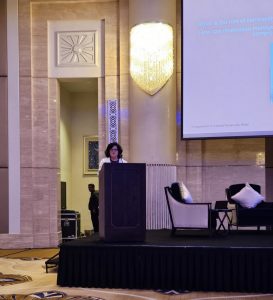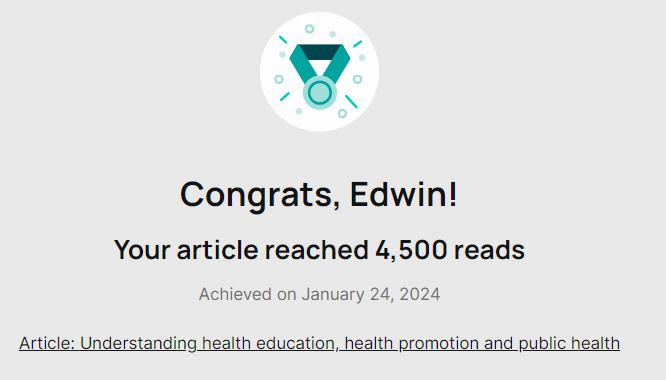Dr Svetla Stoyanova-Bozhkova was invited to deliver the keynote address at the Sustainability and Competitiveness Conference on 25 January 2024 at St Regis, Abu Dhabi, UAE . The conference was organised by the Department of Economic Development (DED) and the Department of Culture and Tourism (DCT) Abu Dhabi, in collaboration with the United Nations World Tourism Organisation Academy.

The theme of the conference was “Advancing Destination Competitiveness through Strategic Leadership, Diversity, Equity, Inclusion and Sustainability”. The conference objectives were to showcase successful practices and strategies, facilitate networking and collaboration among industry professionals and organisations and inspire participants to contribute to the development of competitive and responsible tourism destinations.


Dr Svetla Stoyanova-Bozhkova delivered the keynote address on “Strategic Leadership and Development for Competitive Destinations”. In her address, Svetla discussed the role of sustainability in enhancing destination competitiveness, the need for responsible practices and shared effective strategies for developing human resources within the tourism sector.

Svetla also contributed to the panel discussion on Diversity, Inclusion and Equity alongside H.E. Hareb Al Mheiri, Executive Director of the Abu Dhabi Residents Office, AD Department of Economic Development (DED), H.E. Saeed Ali Al Fazari, Strategic Affairs Executive Director, DCT and Ammar Anwar Sajwani, Director of Tourism Development Department, Ministry of Economy- UAE.
 We are looking for 3-4 post-graduate researchers to take part in a special edition of our Café Scientifique public event series to
We are looking for 3-4 post-graduate researchers to take part in a special edition of our Café Scientifique public event series to


 Would you like to play a key role in supporting preparations for the Engagement & Impact element of BU’s REF2029 submission?
Would you like to play a key role in supporting preparations for the Engagement & Impact element of BU’s REF2029 submission?
 UKRIO has announced details of a forthcoming Free Webinar “Social Media and Ethics” on Wednesday 21st February from 10:00 – 11:00 BST.
UKRIO has announced details of a forthcoming Free Webinar “Social Media and Ethics” on Wednesday 21st February from 10:00 – 11:00 BST. 








 The British Academy is running a project on the SHAPE of research careers, specifically looking at the identity, activity, and mobility of SHAPE postdoctoral researchers, from early career to mid- and late career. We would like to invite anyone who identifies as an early-career social sciences, humanities, or arts researcher to participate in the final workshop, which will be taking place on 1 February 10am to 1pm on Zoom. As a participant in our online workshops, you would also be invited to attend the March conference, with an opportunity to help develop policy options to better support researchers and research, and to network with SHAPE researchers from across UK higher education and other sectors.
The British Academy is running a project on the SHAPE of research careers, specifically looking at the identity, activity, and mobility of SHAPE postdoctoral researchers, from early career to mid- and late career. We would like to invite anyone who identifies as an early-career social sciences, humanities, or arts researcher to participate in the final workshop, which will be taking place on 1 February 10am to 1pm on Zoom. As a participant in our online workshops, you would also be invited to attend the March conference, with an opportunity to help develop policy options to better support researchers and research, and to network with SHAPE researchers from across UK higher education and other sectors.










 From Sustainable Research to Sustainable Research Lives: Reflections from the SPROUT Network Event
From Sustainable Research to Sustainable Research Lives: Reflections from the SPROUT Network Event REF Code of Practice consultation is open!
REF Code of Practice consultation is open! BU Leads AI-Driven Work Package in EU Horizon SUSHEAS Project
BU Leads AI-Driven Work Package in EU Horizon SUSHEAS Project ECR Funding Open Call: Research Culture & Community Grant – Apply now
ECR Funding Open Call: Research Culture & Community Grant – Apply now ECR Funding Open Call: Research Culture & Community Grant – Application Deadline Friday 12 December
ECR Funding Open Call: Research Culture & Community Grant – Application Deadline Friday 12 December MSCA Postdoctoral Fellowships 2025 Call
MSCA Postdoctoral Fellowships 2025 Call ERC Advanced Grant 2025 Webinar
ERC Advanced Grant 2025 Webinar Update on UKRO services
Update on UKRO services European research project exploring use of ‘virtual twins’ to better manage metabolic associated fatty liver disease
European research project exploring use of ‘virtual twins’ to better manage metabolic associated fatty liver disease